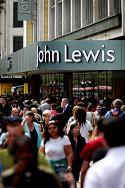Foreign secretary Dominic Raab has announced a range of new measures to ensure British businesses and public bodies have no links to Uyghur forced labour in China.
Raab said that he has been working closely with the home secretary and the secretary of state for international trade with the aim of ensuring no company that profits from forced labour in Xinjiang can do business in the UK, and no UK business is involved in their supply chains.
“We must take action, to make sure that UK businesses are not part of the supply chains that lead to the gates of the internment camps in Xinjiang,” said Raab. “And to make sure that the products of the human rights violations that take place in those camps don’t end up on the shelves of supermarkets that we shop in here at home, week in week out.”
He said that the evidence of the scale and the severity of the human rights violations being perpetrated in Xinjiang against the Uyghur Muslims is now far-reaching.
“Violations include the extra-judicial detention of over a million Uyghurs and other minorities in political re-education camps,” said the foreign secretary.
He warned that the nature and conditions of detention in the region violate basic standards of human rights, and said that at their worst “amount to torture and inhumane and degrading treatment.”
He also mentioned widespread reports of the forced sterilisation of Uyghur women.
Raab said that the new measures would send a clear message these violations of human rights are unacceptable.
In a statement to the commons the foreign secretary outlined four steps to tackling the issue:
1.The Foreign, Commonwealth & Development Office (FCDO) and the Department for International Trade (DIT) have issued new guidance to UK businesses on the specific risks faced by companies with links to Xinjiang and underlining the challenges of conducting effective due diligence there.
A Minister-led campaign of business engagement will reinforce the need for UK businesses to take concerted action to address that particular risk.
2.The government will be strengthening the operation of the Modern Slavery Act.
The Home Office will introduce fines for businesses that do not comply with their transparency obligations.
3.The foreign secretary said that the government had announced last September that the transparency requirements that apply to UK businesses under the Modern Slavery Act will be extended to the public sector.
“The FCDO will now work with the Cabinet Office to provide guidance and support to UK government bodies to exclude suppliers, where there is sufficient evidence of human rights violations in any of their supply chains,” he added.
4.The government will also conduct an urgent review of export controls as they apply specifically geographically to the situation in Xinjiang, in order to make sure everything is being done to prevent the export of any goods that could directly or indirectly contribute to human rights violations in that region.
Raab said that he had made concerns about the situation in Xinjiang clear to China’s foreign minister Wang Yi.
The foreign secretary said that the government have already engaged with businesses with links to Xinjiang and have encouraged them to conduct appropriate due diligence.
Latest News
-
John Lewis expands retail media network with offsite ads
-
Evri plans £50m investment to double network of lockers and ParcelShops
-
Disney Consumer Products hires Nike veteran to SVP of global marketing
-
Home Depot secures $5.5bn takeover of GMS after beating rival bid
-
Asda targets Primark with George clothing expansion plans
-
Pandora partners with Amazon to catch counterfeiters
Supermicro and NVIDIA’s AI Solution for Retailers
To find out more: click here
Poundland significantly reduces antisocial behaviour, aggression and shoplifting with Motorola Solutions VT100 body cameras
Retail should not be a high-risk occupation. As a company, we are focused on listening to our colleagues and customers to help them with the issues they are facing in-store and so far, the feedback on our body cameras has been excellent. They act as a great visual deterrent, help to de-escalate situations and overall, this project has significantly aided our goal to make the retail environment safer.
For further information on Motorola Solutions’ retail security products, including body cameras, click here.
For further information on Motorola Solutions’ retail security products, including body cameras, click here.
© 2024 Perspective Publishing Privacy & Cookies










Recent Stories